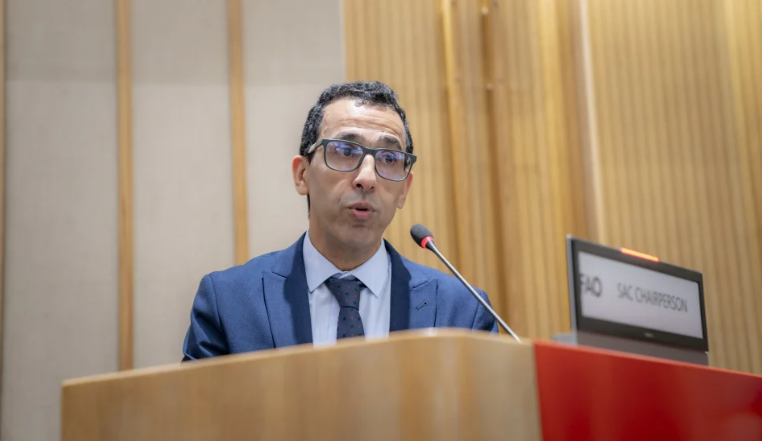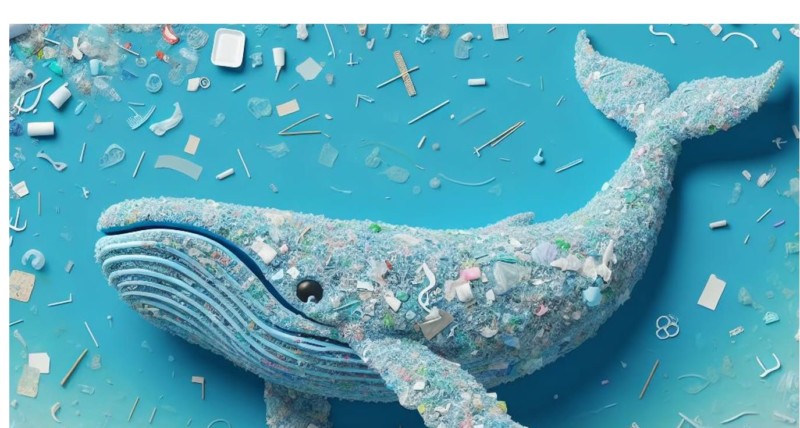Countries are mobilizing to intensify efforts for sustainable fisheries and aquaculture in the Mediterranean and Black Seas.

20 countries and the European Union made a significant step forward in improving the sustainability of fisheries and aquaculture by adopting 17 crucial decisions, including 12 binding recommendations, during the 47th session of the General Fisheries Commission for the Mediterranean (GFCM) of the Food and Agriculture Organization (FAO), held in Rome, Italy.

The GFCM is the regional fisheries management organization with the authority to issue binding recommendations regarding the development of fisheries and aquaculture in the Mediterranean and Black Seas. During its annual session, GFCM members participated in important discussions to review and adopt proposals for recommendations and resolutions, all based on the best available scientific advice.

Among the decisions adopted this week is the strengthening of measures related to the management of many priority species of the GFCM, including the European eel, red coral, pink dentex, European hake, Norway lobster, sprat, turbot, veined rapana, common dogfish, and sturgeon.
Regarding the Adriatic Sea, the conclusion of a rigorous evaluation process of the management strategy supported a historic recommendation to establish rules for species-specific catch control and annual catch limits for sardine and anchovy. This decision departs from the joint catch limits applied up to now and promotes ecological sustainability and economic stability.

At the same time, in the Black Sea, a slight increase in the catch limits for turbot, a crucial species whose fishing mortality has been reduced by three and whose biomass has tripled, was adopted. The species is now approaching sustainability, thanks to the implementation of a multi-year management plan in 2017. This decision aims to encourage fishermen and deter illegal, unreported, and unregulated (IUU) fishing, while improving data collection on fishing effort and discards, and defining new technical measures to reduce bycatch

A new regulated fishing area in the Mediterranean
Spatial management was also a key focus, as countries agreed to create a regulated fishing area in the Strait of Otranto, in the Adriatic Sea. This decision establishes a main area where bottom trawling operations are prohibited to protect vulnerable marine ecosystems composed of bamboo coral and to increase the productivity of marine biological resources by safeguarding habitats essential to fishery resources, such as those of red shrimp and red prawn. Additionally, a buffer zone is defined, within which fishing activities are regulated.
This regulated fishing area is the eleventh established by the CGPM, and its size will be comparable to that of a country like Luxembourg.

Support for the sustainable development of aquaculture
Aquaculture was another crucial issue in this week’s discussions, with countries acknowledging the progress made toward the sustainable development of the sector, as well as the numerous assistance programs implemented across the region over the past year.
In response to emerging diseases caused by climate change, which threaten the productivity and growth of aquaculture, countries have decided to create a network to monitor aquatic diseases and reduce, as much as possible, the risks associated with trade.

Principles of responsible investment in aquaculture have also been adopted, with the aim of making the sector more attractive to investors and highlighting its role in food security.
Progress has been made in terms of compliance and enforcement of rules to combat illegal, unreported, and unregulated (IUU) fishing.
The annual session prioritized strengthening compliance to ensure that member countries effectively implement CGPM decisions, which supports their commitments to the development and regulation of fishing and aquaculture activities.
Significant progress has been made in recent years, and the CGPM has played a key role in the advances achieved by many countries in revising their national legislation to specifically target IUU fishing, as well as in implementing CGPM measures, such as the regional action plan to combat IUU fishing in the CGPM’s area of competence.

Thanks to these efforts, Albania, Algeria, Egypt, Morocco, Montenegro, Turkey, and the European Union and its member states were awarded the compliance prize during the annual session for integrating CGPM decisions into their legal frameworks and providing accurate data.
Last year marked the launch of a new phase toward a more modern framework for tighter control over the compliance of CGPM decisions by countries. The session extensively discussed how to equip CGPM countries with the necessary tools to make rapid progress in this area. Countries emphasized the importance of improving compliance assessments and the implementation of monitoring, control, and surveillance tools, such as inspection programs and vessel observations.
Next Steps
All decisions adopted during this annual session aim to ensure the long-term sustainability of the fishing and aquaculture sectors.
« For the future, I am confident that we can set the bar higher and face together the challenges ahead. I would also like to recognize and congratulate those who contribute collectively to our efforts, the experts, administrators, fishermen, and aquaculturists for their hard work and commitment to our growing work, as the ultimate beneficiaries of our decisions, » said Fouad Guenatri, Study and Synthesis Officer, Ministry of Fisheries and Fishery Production, Algeria, and Vice-President of the CGPM.
About the CGPM
The CGPM is a regional fisheries management organization under the FAO, covering the waters of the Mediterranean and the Black Sea. Its main mission is to ensure the preservation and sustainable use of marine biological resources, as well as the sustainable development of aquaculture.
The CGPM is composed of 23 contracting parties (Albania, Algeria, Bulgaria, Cyprus, Croatia, Egypt, Spain, France, Greece, Israel, Italy, Lebanon, Libya, Malta, Morocco, Monaco, Montenegro, Romania, Slovenia, Syria, Tunisia, Turkey, and the European Union) and six cooperating non-contracting parties (Saudi Arabia, Bosnia and Herzegovina, Georgia, Jordan, Moldova, and Ukraine).
Source : presse agence




